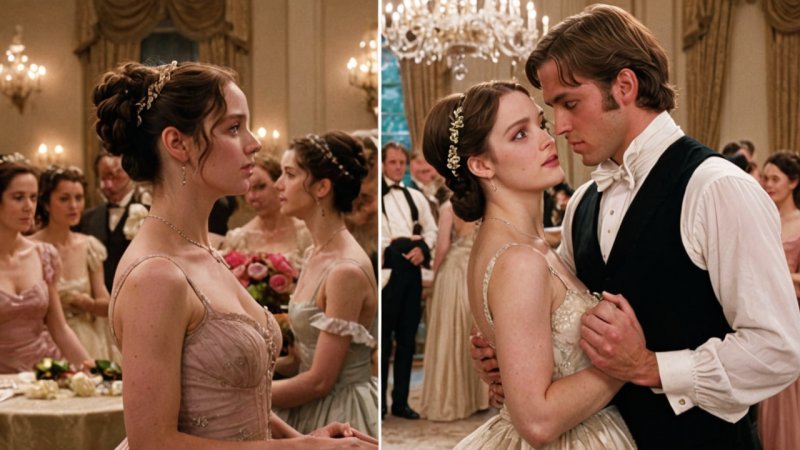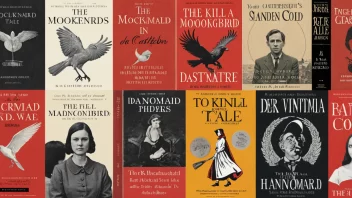Love is a timeless theme that has captivated readers for centuries, transcending genres and generations. Two novels that exemplify this theme, albeit in vastly different ways, are Nicholas Sparks' 'The Notebook' and Jane Austen's 'Pride and Prejudice.' While both works delve into the complexities of love, they do so through distinct lenses—one through the passionate, sometimes tumultuous romance of two people in contemporary America, and the other through the societal constraints and expectations of the Regency era in England. This article will compare these two beloved novels, examining their portrayals of love, character development, and the societal contexts that influence their narratives.
Overview of the Novels
'The Notebook,' published in 1996, tells the story of Noah Calhoun and Allie Nelson, whose love endures despite the challenges of class differences and life circumstances. The narrative unfolds through the lens of aging Noah, who reads their love story to Allie, who is suffering from Alzheimer's disease.
On the other hand, 'Pride and Prejudice,' first published in 1813, follows Elizabeth Bennet and Mr. Darcy as they navigate their initial misunderstandings and societal expectations to ultimately find love. Austen's work is a critical commentary on the social fabric of her time, particularly regarding marriage and class.
Portrayal of Love
Romantic Love
In 'The Notebook,' love is depicted as a force that transcends time and circumstance. Noah and Allie's relationship is characterized by passion, longing, and the trials of separation. Their love story is emblematic of the idea that true love can conquer all obstacles, including social class and illness.
In contrast, 'Pride and Prejudice' explores love within the framework of societal expectations and personal growth. Elizabeth and Darcy's relationship is initially marked by pride and prejudice, but as they confront their own flaws and biases, their love matures and evolves. This transformation highlights the importance of understanding and respect in a romantic relationship.
Familial and Platonic Love
While 'The Notebook' primarily focuses on romantic love, it also touches on familial bonds, particularly through Noah's relationship with his parents and Allie's family dynamics. The novel emphasizes the idea that love is not just romantic but also familial, showcasing how these relationships impact the characters' choices.
'Pride and Prejudice' offers a richer exploration of various types of love, including the bond between sisters, as seen in the relationship between Elizabeth and Jane Bennet. Austen illustrates how familial love can support or hinder romantic pursuits, as the Bennet sisters face societal pressures and expectations from their family.
Character Development
Noah and Allie vs. Elizabeth and Darcy
Noah and Allie's characters are shaped by their deep emotional connection and the challenges they face. Noah is portrayed as the archetypal romantic hero, willing to fight for his love despite the odds. Allie embodies the struggle between personal desires and societal expectations. Their development is primarily driven by their love story and the choices they make in pursuit of happiness.
In contrast, Elizabeth and Darcy's character arcs are more complex and nuanced. Elizabeth is strong-willed and independent, challenging societal norms, while Darcy initially appears aloof and proud. Their journey is as much about personal growth and self-discovery as it is about their love for each other. Austen's characters undergo significant transformation, reflecting the changing nature of love.
Societal Context
Class and Social Expectations
'The Notebook' is set against the backdrop of contemporary America, where class differences still play a role but are less rigid than in Austen's time. Noah and Allie's love story reflects the modern struggle of finding one's identity amidst societal pressures and expectations, yet it ultimately celebrates individual choice and emotional fulfillment.
Conversely, 'Pride and Prejudice' is deeply entrenched in the societal norms of early 19th-century England, where marriage is often more about economic security than love. The constraints placed on women regarding marriage and social standing are central to the narrative. Austen critiques these norms, advocating for love that is based on mutual respect and understanding rather than mere convenience or financial gain.
Emotional Impact
The emotional impact of both novels resonates with readers, but in different ways. 'The Notebook' is often described as a tear-jerker, eliciting deep feelings of nostalgia and empathy as readers witness Noah's unwavering devotion to Allie. The poignant moments are crafted to tug at the heartstrings, leaving readers reflecting on the nature of love and loss.
In contrast, 'Pride and Prejudice' offers a blend of wit and romance, engaging readers through Austen's sharp social commentary and humor. The emotional journey is not just about romantic love but also about personal growth and the importance of understanding oneself and others. The ending, while romantic, also emphasizes the joy of self-discovery and the value of personal integrity.
Conclusion
In comparing 'The Notebook' and 'Pride and Prejudice,' it is evident that both novels offer unique and compelling portrayals of love, shaped by their respective contexts and character developments. While 'The Notebook' emphasizes the power of enduring love against the trials of life, 'Pride and Prejudice' invites readers to consider the complexities of love within societal constraints and personal growth. Each novel has its strengths, appealing to different aspects of the readers' understanding of love. Ultimately, whether you favor the passionate romance of 'The Notebook' or the insightful exploration of love in 'Pride and Prejudice,' both works remind us of the profound impact love has on our lives, making them essential reads for anyone passionate about literature.






